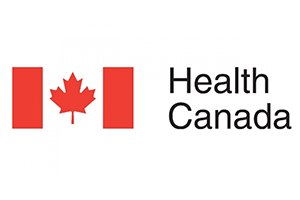Innovation is giving rise to incredible medical advances and the development of health care practices and services that are always better suited to people’s needs. The decisive shift we are taking toward the judicious use of biosimilar drugs is a good example of this.
- Bone Health
- Immunology
- Hematology
- Respiratory
- Dermatology
- Diabetes
- Gastroenterology
- Neurology
- Oncology
- Ophthalmology
- Rare Disease
- Rheumatology
Quebec Makes It Harder to Use Originator Biologics
Biosimilars were on formulary for years but nobody was using them, Canadian authorities explain as their reasons for dropping originators from approved lists.
Quebec has become the fourth Canadian province to implement a mandatory biosimilar switching program. With some exceptions, the province is switching to a policy of allowing only biosimilars, if available, on lists of approved biologics.
“Thus, depending on the option considered, patients who use a reference biological drug, for which one or more biosimilar drugs are registered, will have to switch to one of these by April 12, 2022, under the supervision of their doctor,” said Minister of Health and Social Services Christian Dubé in a statement.
Manufacturers of reference biologics “have been informed of this shift” and “discussions will take place with the main partners and associations of the health and social services network on this subject in the coming weeks,” the statement said.
The province anticipates US $83 million in annual savings by 2022. Officials said the move follows failure to achieve sufficient uptake of biosimilars in Quebec even though they have been recommended by the National Institute of Excellence in Health and Social Services and placed on drug formularies “for many years.”
“This situation generates a considerable additional cost for the general drug insurance plan because biosimilar drugs are significantly less expensive than reference drugs, with no difference in [quality of] therapy for patients," according to Dubé.
Canadian health authorities stressed that biosimilars are safe and effective, proven similar to originator brand drugs, and authorized by use by the public health authority Health Canada. In 1997, Quebec adopted a general prescription drug insurance plan that provides universal health coverage for all citizens of the province. The cost of this plan from 2019 to 2020 was $5.1 billion.
Health Canada has approved 36 biosimilars for 14 innovator products. There are 13 other biosimilar candidates under review, and these include 5 bevacizumabs and 2 adalimumabs, according to an analysis by Smart & Bigggar, an intellectual property law firm. Regulatory reviews of biosimilars in Canada generally take about a year, although some are considerably longer.
A Decisive Shift
“Innovation is giving rise to incredible medical advances and the development of health care practices and services that are always better suited to people’s needs. The decisive shift we are taking toward the judicious use of biosimilar drugs is a good example of this,” Dubé said.
Biosimilars Canada, a trade group representing biosimilar distributors and manufacturers, applauded the move.
“These savings will be reinvested into the health care system and will also improve access to innovative drug therapies,” the group said.
Under the policy, patients who are being treated with an originator biologic drug for which a biosimilar biologic drug is available will switch to a biosimilar under the supervision of their treating physician by April 12, 2022.
“Biosimilar switching policies are essential to ensuring the long-term sustainability of drug benefit plans and health care systems,” said Jim Keon, president of Biosimilars Canada.
Quebec follows British Columbia, Alberta, and New Brunswick in implementing the biosimilars plan. Biosimilars Canada indicated that residents of Quebec were 85% in favor of a switching policy according to a recent poll.
Read about the New Brunswick, Canada, switch to biosimilars here.
Read about Amgen Canada's launch of an adalimumab biosimilar here.
Newsletter
Where clinical, regulatory, and economic perspectives converge—sign up for Center for Biosimilars® emails to get expert insights on emerging treatment paradigms, biosimilar policy, and real-world outcomes that shape patient care.

